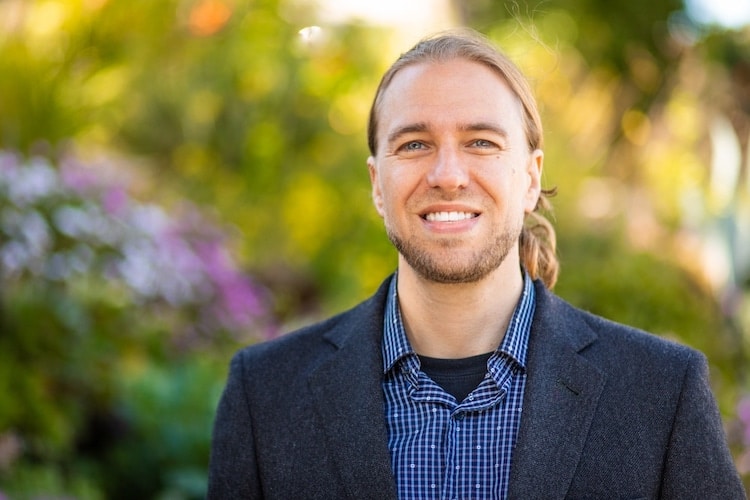
Psychedelic Integration Insights with Dr. Eric Sienknecht of the Polaris Insight Center in San Francisco
Dr Eric Sienknecht, a psychedelic integration therapist in San Francisco, brings extensive experience working with psychedelics as Co-founder and Ketamine-assisted psychotherapist at Polaris Insight Center and as Sub-Investigator and Therapist with MAPS Clinical Program for MDMA-Assisted Psychotherapy. Frshminds had the opportunity to reach out to Dr. Sienknecht in order to share some of his insights on psychedelic integration and mental wellness.
What got you interested in providing psychedelic integration to your patients?

With the recent resurgence in Western societies of research, clinical work, and increased public interest in the use of psychedelic medicines for healing, we are also in need of a new paradigm for approaching the work that includes a broader understanding of the healing process. Clients testify to the, now cliche, observation that a single psychedelic therapy session can be equivalent to a year of regular therapy sessions. The medicine in combination with the music and the psychotherapy, facilitate the induction of a trance state and expedite access to deeper processing of unconscious material, including negative cognitive schemas, traumatic memories, and even material that transcends space, time, body, and ego. Over the past few years, while the majority of people contacting me to consult around psychedelic use reported beautiful stories of healing, some also were seeking support around experiences with the medicines that they were having trouble making sense of – and integrating – into their understanding of themselves, the world, and others. Because I have had my own profound experiences with psychedelic medicines and struggled at times to integrate them, I appreciated the desire – and sometimes need – to connect with someone who is experienced with the medicine – and start to put words to the experience and make meaning out of it. It was therefore a natural inclination and step in my development as a clinician to begin offering a space for people to come and share and examine these novel experiences more deeply.

What makes your practice special?
I have been working with psychedelics clinically for several years and appreciate the gravitas and complexity of my patients’ processes of developing relationships with these medicines. Healing is a personal, active, and ongoing process and asks a lot from the one seeking healing. For the past 5 years, I have sought to begin offering psychedelic medicines in combination with my psychotherapeutic work and have undergone training with Michael and Annie Mithoefer and the clinical team at MAPS to provide MDMA-assisted psychotherapy and with Phil Wolfson, Julane Andries, and Raquel Bennett to provide ketamine-assisted psychotherapy. I hope to be able to provide a safe and supportive setting for my clients to have novel experiences, explore the vast terrain that is human consciousness, potentially engage in the work of facing their shadows and releasing psychic, emotional, and spiritual material that is no longer serving them, and do the important work of integrating new knowledge and insights into their understanding of themselves and their worldview, all with someone who has some familiarity with the terrain and can support their process and facilitate the emergence of their inner healing intelligence.
I also have had the pleasure of participating in a weekly online integration circle where members support each other around their psychedelic journeys. In this context, I have had the chance to witness beautiful ways in which the community has held individuals’ psychedelic journeys and have been opened to our potential, as a greater society, to one day appreciate and hold individuals’ non-ordinary experiences with more curiosity, compassion, and grace.
What’s the one piece of advice you would offer to patients considering psychedelic integration to help them manage their mental health?

Psychedelic integration does not have to happen in the therapy room, but the integration process is generally facilitated through conversation with an experienced and open-minded other. When the psychedelic journeyer does not have such a person in their family or circle of friends (which is unfortunately more the norm than the exception, still), they may seek out an integration provider. Also I believe having a personal relationship with the medicine to be a great asset in this work, the integration provider does not necessarily have to have personally worked with psychedelics, However, they should have some experiential knowledge of entering into and working with non-ordinary or expanded states of consciousness, through such modalities as Holotropic Breathwork, meditation retreats, or floatation tanks, and they would, ideally, also have some specialized, professional training in providing support around the integration process. Some organizations providing this type of training include MAPS, CIIS, Ketamine Training Center, Polaris Insight Center, Sage Institute, Fluence, and PRATI.
What are the most remarkable changes you have seen in patients who have leveraged psychedelic integration to manage their mental wellness?
Perhaps the most remarkable change I have witnessed in clients, one that is not uncommon in my experience, is the shifting of how they relate to themselves. Through the sharing of these experiences and the subsequent recognition, normalization, and validation of these experiences by the other, people gain appreciation of the vastness, depth, and richness of their inner worlds. They begin to gain confidence in themselves to be able to go further and embrace more fully their shadow parts, their shame, their fears, their doubts, their pain, and trust that, no matter what material comes up in their experiences with the medicine, it is coming up for a reason, it is coming up for healing, and it is digestible and metabolizable with the support of the community.
What challenges do you see for further integration of psychedelic based therapies into more mainstream health care?

One of the challenges for integrating integration of psychedelic based therapies into mainstream health care is a tendency of the medical establishment to view the psychedelic medicine work through the often myopic lens of the medical model and overly focus on and prioritize the biological/neurological effects of the medicine at the expense of the more psychological, transpersonal, and shamanic aspects of the work. IV Ketamine clinics for example, often do not have psychologically trained people on staff to advise clients on preparation and set and setting optimization and to support clients’ processes in the medicine sessions and in the integration phase, focusing instead, and sometimes exclusively, on achieving symptom relief or improved test results. I believe the medical model is helpful and necessary in doing this work, but it is not the only approach. The use of psychedelic medicine for healing would ideally be informed by an integrative approach to the work and a deep understanding and appreciation of multiple levels of healing, We need to understand as providers that a client’s healing process is a very personal and often unpredictable one, guided by their own inner healing intelligence, and that this process needs to be contained and supported through careful midwifing by trained psychedelic therapists, in addition to their medical care. This is how we will achieve the greatest results for our clients and provide the fuel for the wider reform of our healthcare system.
If you want to learn more about Dr. Eric Sienknecht approach to care, check out his Frshminds listing.
Learn more about the potential of psychedelics in mental wellness by browsing our Ultimate Psychedelics and Mental Wellness Guide!
Learn More About Psychedelic Integration Therapy
- History of Psychedelic Integration Therapy
- Have You Heard of a Psychedelic Integration Therapist?
- What is Psychedelic Integration Therapy?
- Ana Holub: Forgiveness, Addiction Recovery and Psychedelic Integration
- Meet June Jackson: New Orleans Psychedelic Integration Specialist and Life Coach
- Psychedelic Therapist Scott Ross’ Insights on Integration Therapy
- Psychedelic Therapist Lynne Nardizzi, LCSW, Talks Psychedelic Integration
- Meet Gerard Artesona: Psychedelic Integration Therapist and Spiritual Guide
- Rima Danielle Jomaa: Psychedelic Integration Therapist and Mindfulness Expert
- Introducing Brian Murphy: Psychedelic and Psychospiritual Integration Therapist

Comments